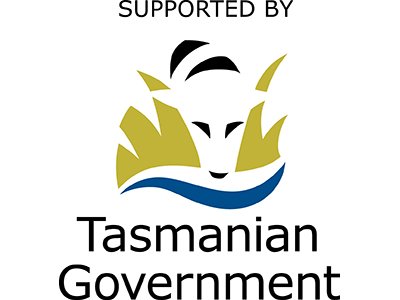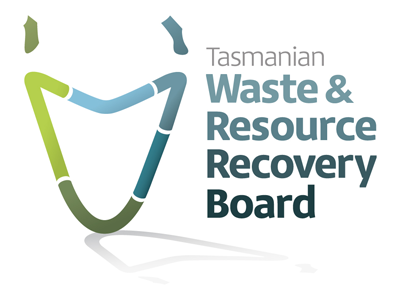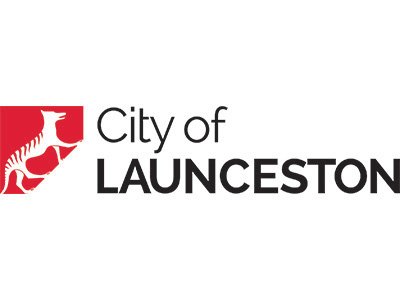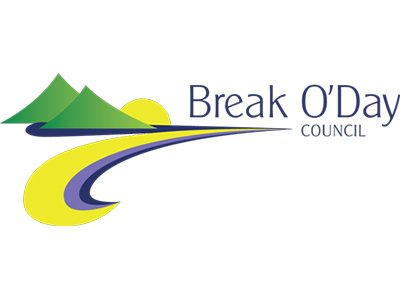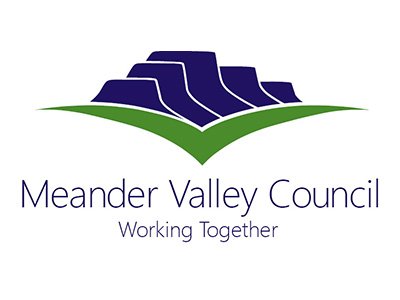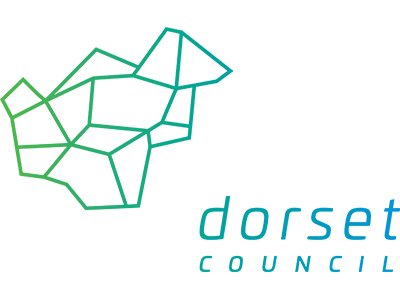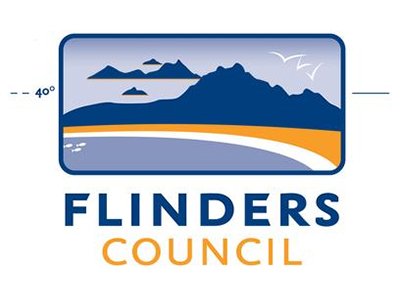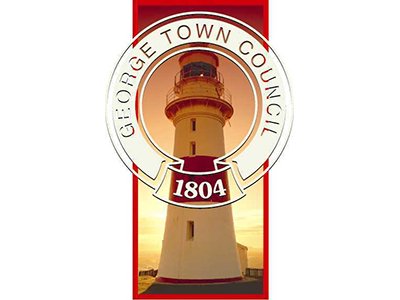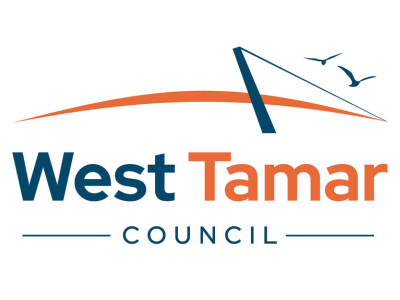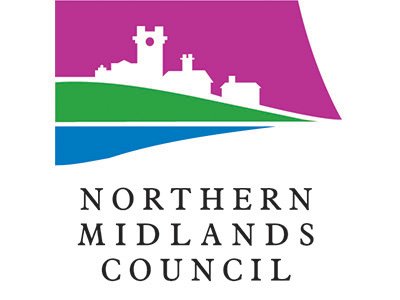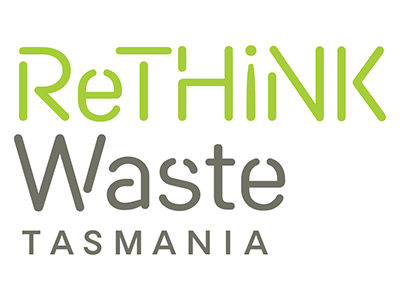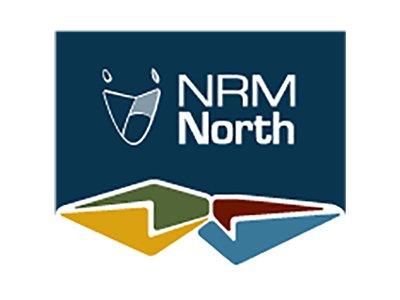Resource Recovery and Circular Economy Grants
The Resource Recovery and Circular Economy Grants support successful applicants to decrease the amount of waste sent to landfill through innovative activities, and increase the recirculation of resources. Future waste targets and actions will encourage the transition to a circular economy.
Application status - CLOSED
Applications for the Resource Recovery and Circular Economy Grants are currently CLOSED.
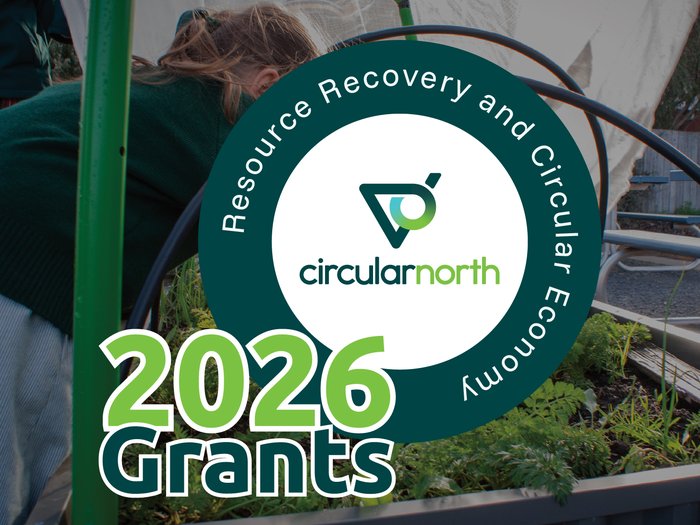
Background
Background
Circular North’s Resource Recovery and Circular Economy Grants have provided $245,000 in funding since 2023 to support innovative projects that reduce landfill waste and strengthen northern Tasmania’s circular economy. These grants have helped divert more than 400 tonnes from landfill, demonstrating a significant impact on resource recovery in the region.
A total of $45,000 was available under the 2026 Resource Recovery and Circular Economy Grants to support successful applicants for eligible project costs associated with:
- Funding for circular economy initiatives
- Waste reduction projects
- Investment in recycling infrastructure
- Educational initiatives
Who can apply?
Who can apply?
The following organisations can apply for funding under the Resource Recovery and Circular Economy Grants 2026:
Not-for-profit community organisations and schools: An organisation that does not operate for the profit or gain of their members, including schools, charities and deductible gift recipients.
Other organisations: Sole traders, small, medium and large businesses, local governments and local government organisations, state government organisations (including hospitals and tertiary education institutions).
Eligible organisations must:
- be based and operate in the northern Tasmania area as defined by the council boundaries of Break O'Day, George Town, Launceston, Meander Valley, Northern Midlands, Dorset, West Tamar and Flinders Island.
- be seeking to minimise waste to landfill from their operations, by implementing circular economy initiatives or community activities in the northern Tasmanian community.
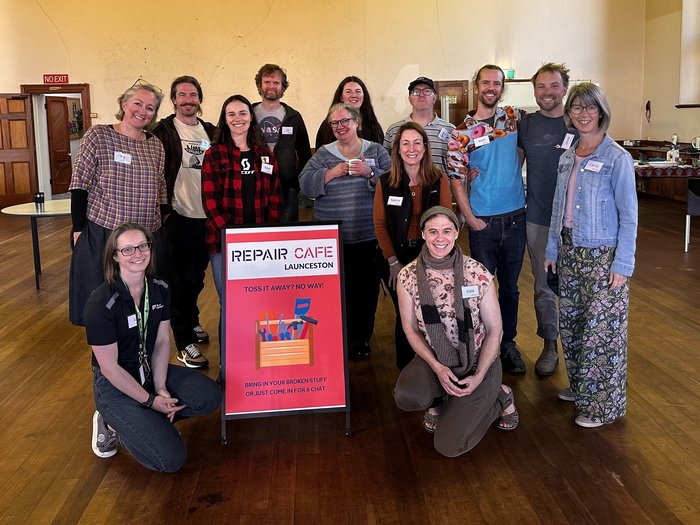
City of Launceston Repair Cafe - Grant recipient 2024
Quick Q&A
Quick Q&A
The following organisations can apply for funding under the Resource Recovery and Circular Economy Grants 2026:
Not-for-profit community organisations and schools
- An organisation that does not operate for the profit or gain of their members, including schools, charities and deductible gift recipients.
Other organisations
- Sole traders, small, medium and large businesses, local governments and local government organisations, state government organisations (including hospitals and tertiary education institutions)
Eligible organisation criteria
Organisations must:
- be based and operate in the northern Tasmania area as defined by the council boundaries of Break O'Day, George Town, Launceston, Meander Valley, Northern Midlands, Dorset, West Tamar and Flinders Island.
- be seeking to minimise waste to landfill from their operations, by implementing circular economy initiatives or community activities in the northern Tasmanian community.
A total of $45,000 is available, which is split between schools, not-for-profit and other organisations.
Eligible organisations can apply for a grant of up to $10,000 (ex-GST) for eligible project costs associated with improving resource recovery, waste minimisation or circular economy initiatives.
The maximum grant amount for an individual project application is $10,000, however, larger projects may be eligible for a higher amount in the event the grants program is undersubscribed.
Not-for-profit community organisations and schools.
The following can be funded by the Resource Recovery and Circular Economy Grants 2026:
- Procurement of ‘recycling hubs’: it should be noted that agreements with Circular North regarding monitoring and collection of recycled materials must be entered into with prospective grant recipients.
- Projects involving litter management, awareness and prevention.
- Programs that raise community awareness of recycling and waste management in migrant and international student communities and/or the broader community.
- Projects that value-add or up-cycle materials otherwise destined for landfill, e.g. hand dryers to replace paper towel or water refill stations to replace single use water bottles.
- Infrastructure to promote waste separation including: recycling and organics bin systems or worm farms.
All eligible organisations
The following can be funded by the Resource Recovery and Circular Economy Grants 2026:
- Procurement of ‘recycling hubs’, it should be noted that agreements with Circular North regarding monitoring and collection of recycled materials must be entered into with the prospective grant recipient.
- Innovative recycling infrastructure that demonstrates best practice, including systems to increase resource recovery of commercial and industrial (C&I) and/or construction and demolition (C&D) wastes. (This does not include infrastructure that is a compliance requirement, or part of the applying organisation's usual business operations)
- Projects involving litter management, awareness and prevention e.g. waste separation or reduction infrastructure.
- Circular economy projects or infrastructure that value-add or up-cycle materials otherwise destined for landfill.
- Programs that raise community awareness of recycling and waste management in migrant and international student communities and/or in the broader community.
Applications will be assessed by an independent assessment panel convened by Circular North, and funding recommendations will be endorsed by the Circular North Steering Committee. The assessment panel may request input from relevant subject matter experts for technical aspects where the assessment panel does not hold the requisite expertise.
Additionally, as part of the assessment process, commercial or private operators may be asked to provide financial information to the satisfaction of Circular North that allows financial viability to be verified.
Applications will be assessed against the following criteria:
- Community benefit – how the project benefits the northern Tasmanian community.
- Project duration – how long the project provides a benefit to the northern Tasmanian community.
- Commitment – the applicant's commitment to improving waste management, recycling and transitioning to a circular economy.
- Landfill diversion – how the project leads to an improvement in resource recovery or waste minimisation.
- Value for money – the financial value of the project compared to the expected benefits.
- Cash contributions to the project.
- Where bin infrastructure is to be installed, assessment that the bins meet the Australian Standards for bin colours.
- A cash co-contribution equal to 50% of the total eligible project cost is required for the project, except if the applicant is a school or not-for-profit community organisations. See the Application Guidelines for more information about in-kind contributions.
- A total funding pool of $45,000 is available to all applicants.
- The maximum grant amount available for any one application is $10,000, however, larger projects may be eligible for a higher amount in the event the grants program is undersubscribed.
- Funding will be provided to successful applicants in two payments. Successful grant applicants will receive an upfront payment of 50% of the approved grant amount once relevant paperwork is signed and returned. Final payment to the applicant will be made once all expenditure has been incurred and evidence of expenditure provided to Circular North in the form of a correctly rendered tax invoice.
- Successful projects MUST be completed within 12 months of signing the funding agreement.
The following costs and activities will not be funded:
- Projects with a heavy bias on research and development or software applications.
- Infrastructure not directly related to the project e.g. sheds, cement slabs, bunds.
- Compliance requirements and business as usual operations including standard infrastructure upgrades at council transfer stations.
- Projects for organisations that are based and operate outside of the northern Tasmanian area as defined by the council boundaries of Break O'Day, George Town, Launceston, Meander Valley, Northern Midlands, Dorset, West Tamar and Flinders Island.
- Projects relating to hazardous waste (with the exception of projects that are educational such as sharps or asbestos disposal awareness programs).
- Project management costs or staff salaries.
- Costs of equipment not dedicated to the project purpose (e.g. vehicles).
- Security or surveillance equipment.
- Contingency costs.
- Projects that commenced prior to notification of successful applicants, or projects that seek retrospective funding for work already completed at the time of application.
- Ongoing costs such as bin bags, collection, transportation and processing services.
- Staff training for training not directly related to this project.
- In-kind costs are an ineligible contribution towards the total eligible project costs, except if the applicant is a not-for-profit community groups or school.
All applicants should ensure they have read and understood the Application Guidelines prior to submitting an application. To apply, applicants must complete the following steps:
STEP 1
Ensure your organisation is eligible to apply.
STEP 2
Check your project against the funding criteria and what the grants will fund.
STEP 3
Read the grant application conditions in accordance with application guidelines in the application form to ensure they are met.
STEP 4
Complete the application form available at www.circularnorth.org.au
STEP 5
Attach the following documents where applicable:
- Supporting documents that respond to the required information.
- Two current quotes.
(Prior approval must be sought from Circular North if the applicant is unable to provide two valid quotes).
STEP 6
Email the application form and additional documents to circularnorth@nrmnorth.org.au
You will also receive an acknowledgment email on successful submission of your application.
OPTION
Alternative application submission If you are unable to submit your application electronically, contact Circular North to arrange an alternative method for submission. Alternative arrangements must be made at least five business days prior to the application closing date.
If after reading the application guidelines you wish to find out more about the Resource Recovery and Circular Economy Grants, or discuss your application please contact:
Steve Jordan
Program Manager - Circular North
Email: circularnorth@nrmnorth.org.au
Phone: 03 6333 7777
Resources
Resources
Grant recipients - 2025
In 2025, a total pool of $50,000 was available to fund projects that supported circular economy initiatives, reduced waste going to landfill, invested in innovative recycling infrastructure and/or developed educational materials to improve waste management practices. Five individual applications were awarded up to $10,000 of financial support each for eligible project costs.
The total expected value of the funded projects is over $43,000 with an expected diversion of 217 tonnes from landfill per year.
Grant funding has allowed Bridport Primary School to reduce paper waste and improve sustainability within the school by installing hand dryers in all bathroom facilities to replace the current use of pre-folded hand towels, and a recycling bin in the outdoor eating area. This was the only location in the school where students did not have the option to sort their waste, leading to unnecessary landfill contributions. The project will not only improve sustainability within the school but will also instil lifelong habits in their students, encouraging them to be more conscious of their environmental impact.
The Exeter High School Agriculture Program promotes sustainability and resilience in agricultural systems. With grant funding, a biochar kiln has been purchased, turning pruned branches and dry garden waste (biomass) from the school grounds and farm into a valuable resource that's no longer destined for landfill or burning. The biochar sequesters carbon, and will be used by the school to improve soil structure and water retention.
Golden Brown supports the local circular economy by collecting discarded organic waste from local hospitality businesses, offices and florists and composting the organic material on an urban farm and vineyard in Norwood, Launceston. Grant funds have supported the organisation's hot composting, vermicomposting and pyrolysis (bio char) systems, by funding the addition of worm farms to scale-up the operation.
Grant funding replaced ten paper towel dispensers in the school toilet blocks with energy-efficient hand dryers, significantly reducing paper waste. An awareness campaign educated students and staff about the benefits of using hand dryers over paper towels and promoted a more sustainable environment within the school community. The project will reduce paper waste, conserve natural resources, decrease landfill contributions, lower ongoing costs associated with purchasing and disposing of paper towels, and provide a more hygienic hand-drying solution.
Following the Tasmanian Government’s announcement of a Container Refund Scheme (CRS), Scouts Tasmanian developed a plan so all scout groups could participate equitably in the CRS, regardless of group size. Scouts branded blue wheelie bins were purchased with grant funding for halls in northern Tasmania to place as donation points at workplaces, and an event kit for the northern groups was created to support the collection of containers at events in the region.
Grant recipients - 2023/2024
The theme for the 2023/2024 Resource Recovery and Circular Economy Grants was ‘Turning trash into treasure’. Over $30,000 of funding was awarded to six organisations to support innovative concepts focusing on upcycling, repurposing and rehoming goods while reducing items going to landfill, as well as impressive projects supporting sustainable practices.
Applications for this grant round closed on 14 May 2023, and projects were completed by June 2024. The total value of these projects once completed was projected to be over $85,000 and is estimated to divert over 165 tonnes of waste from landfill per annum.
George Town Neighbourhood House - The Great Giveaway
Grant funding facilitated the acquisition of a shipping container, shelving units, and containers for the George Town Neighbourhood House, enabling the establishment of a structured and efficient system for organising, sorting, and presenting items during their "The Great Giveaway" events.
City of Launceston - Repair Café
City of Launceston’s monthly Repair Café teaches people how to fix everything from clothing and furniture to bikes and electronics. The grant funding enabled the purchase of valuable equipment including an industrial sewing machine (capable of repairing tougher fabrics such as camping and hiking equipment), a bike stand, an iFixit laptop, and a phone repair kit, broadening the range of items that can be repaired.
Have been granted funds to provide financial incentive for community members to invest in more sustainable and environmentally conscious choices of sanitary products (reusable pads, period cups, LBL underwear etc.) and reusable nappies. The council hopes the rebate will help reduce waste, support the needs of the community, and help progress towards the goal of zero waste to landfill.
The Tamar Valley Steiner School is aiming to strengthen their green footprint by adding to existing composting facilities at the school in St Leonards. Grant funding purchased a large compost tumbler and two rodent-proof worm farms that can handle a greater volume of waste. The school also invested in a FOGO bin to dispose of paper towel. With a focus on sustainability, the school is continuously seeking ways to divert and minimise waste going to landfill.
Transporting food by sea and air to Flinders Island can be unreliable. To increase food security and reduce organic waste, in-line with the island's vision for zero-waste, residents are being encouraged to grow their own produce, and utilise worm farms to process organic waste. The Grant funds have contributed to the installation of a trial worm farm, where the three units are capable of processing up to 60 litres of organic waste a day, resulting in nearly 9,000 litres of microbe-rich vermicast available to food growers every year. The units have been installed at the Flinders Council main waste facility at Whitemark.
Grant funds supported the expansion of the grocery store's worm farms from two to seven, and allowed for three composts working on their farm and egg production in Westbury. Increasing the amount of worm farms and composting units will allow a closed loop waste recycling situation for organic waste generated at the store and on-farm.
Partners
Circular North is supported by the Tasmanian Waste and Resource Recovery Board, which is funded by the Tasmanian Government.
Partners
Circular North is supported by the Tasmanian Waste and Resource Recovery Board, which is funded by the Tasmanian Government.
